Hamas' reign of terror
The Oct. 7 atrocities marked a bloody new chapter in the Palestinian group’s four-decade conflict with Israel.
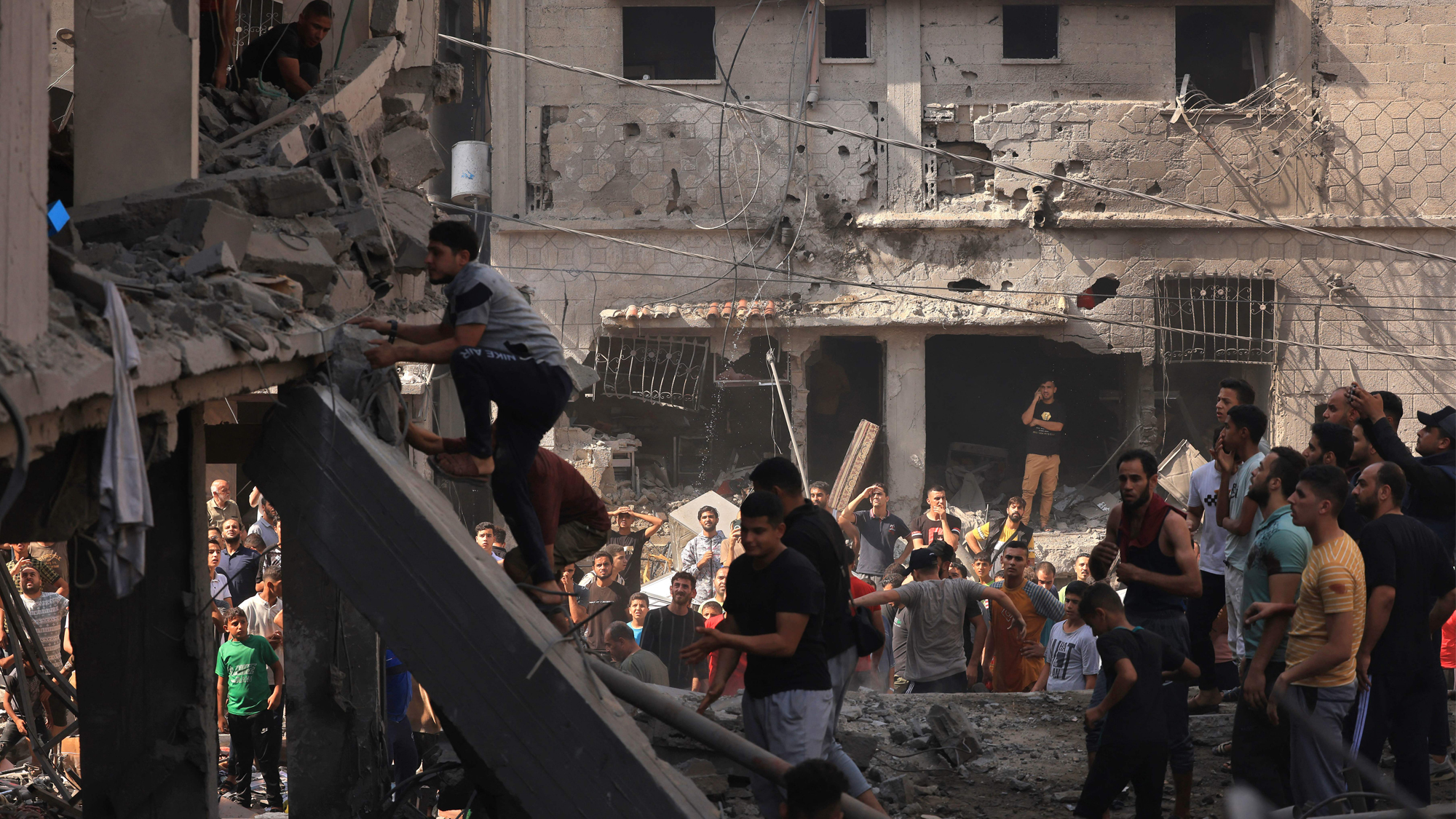
A free daily email with the biggest news stories of the day – and the best features from TheWeek.com
You are now subscribed
Your newsletter sign-up was successful
The Oct. 7 atrocities marked a bloody new chapter in the Palestinian group’s four-decade conflict with Israel. Here's everything you need to know:
What is Hamas?
Designated a terrorist organization by the U.S. and dozens of other countries, Hamas controls the Gaza Strip, a sliver of land between Israel and Egypt that’s home to some 2 million people. Since its founding in 1987 during the first intifada — an uprising against Israeli military control of Gaza and the West Bank — Hamas’ messaging to the outside world has varied, but it has always had one main goal: the violent obliteration of Israel and its replacement by an Islamic society. “In face of the Jews’ usurpation of Palestine,” the group’s founding charter declares, "it is compulsory that the banner of Jihad be raised." An offshoot of Egypt’s Muslim Brotherhood, Hamas has turned peace talks into bloody uprisings, indoctrinated and trained child soldiers in summer camps, and targeted Israelis with rockets, kidnappings and suicide bombings. Before the devastating Oct. 7 attacks, Israel had largely resigned itself to trying to weaken and contain Hamas. Now it is pledging to wipe out the terrorist group, which has up to 40,000 fighters. "Hamas has shown itself to be an enemy of civilization," said Prime Minister Benjamin Netanyahu. "Every place from which Hamas operates will turn into ruins."
How did Hamas win power in Gaza?
Through a combination of brutality and charity. While organizing waves of bloody attacks inside Israel — "martyrdom" operations that many Palestinians cheered as revenge for their own losses — Hamas founder Sheikh Ahmed Yassin also provided health care, food and other social services to impoverished Gazans. In the 2006 elections, Hamas won a landslide victory in Gaza over the more moderate Fatah, which controls the West Bank–based Palestinian Authority and is viewed by many Palestinians as a corrupt enabler of Israeli occupation. Fatah refused to cede power and after a week of violence in 2007, Hamas took total control of Gaza. "The era of justice and Islamic rule has arrived," said a spokesman for the Islamist group. Since then, Hamas has fought four wars and countless skirmishes with Israel, further immiserating the territory.
The Week
Escape your echo chamber. Get the facts behind the news, plus analysis from multiple perspectives.

Sign up for The Week's Free Newsletters
From our morning news briefing to a weekly Good News Newsletter, get the best of The Week delivered directly to your inbox.
From our morning news briefing to a weekly Good News Newsletter, get the best of The Week delivered directly to your inbox.
What are its typical tactics?
In its early years, Hamas used small squads of gunmen and suicide bombers to kill Israeli civilians and soldiers. After Israel assassinated the group’s top bomb maker — responsible for at least 90 deaths — with a booby-trapped cellphone in 1996, Hamas retaliated with four suicide bombings. One attack outside a Tel Aviv mall killed 13 people, five of them children. During the second Palestinian uprising, from 2000 to 2005, Hamas orchestrated dozens more suicide bombings. One blast killed 15 people, including five children, at a Jerusalem pizzeria in 2001; a year later, a bomber killed 30 people at a Passover celebration in Netanya. After Israel withdrew from Gaza in 2005 and sealed off its border to stop infiltrations by Hamas fighters, the group switched tactics and focused on bombarding Israel with rockets and missiles. Its carefully planned slaughter of more than 1,400 Israelis earlier this month marked another sharp change in strategy, one that Israel had not expected.
How has Israel tried to contain Hamas?
By "mowing the lawn." That’s the Israeli term for its regular use of airstrikes and limited ground incursions to reduce Hamas’ military capabilities — operations that often kill civilian bystanders. During the second Palestinian uprising, Israel conducted some 200 assassinations; Yassin was killed in a missile strike in 2004. Israel has continued to target Hamas leaders in Gaza and beyond — Mossad agents are suspected of drugging and suffocating military commander Mahmoud al Mabhouh in a Dubai hotel room in 2010. More recently, Israel adopted a carrots-and-sticks approach to Hamas, issuing more permits that let Gazans work inside Israel and punishing violence with targeted airstrikes. Despite that bloody status quo, experts say, Hamas may have decided to launch the Oct. 7 attacks in part to derail talks aimed at normalizing relations between Israel and Saudi Arabia. That deal was expected to include few concessions to the Palestinians — and would have further isolated Hamas’ main backer, Iran.
What support does Iran provide Hamas?
The Shiite nation supplies the Sunni terrorist group with weapons, military training and some $100 million a year. Iran’s most important proxy, the Lebanese militant group Hezbollah, has instructed Hamas on guerrilla warfare since the 1990s. "Iran views the Palestinian arena as a major opportunity to promote its vision of surrounding Israel with a 'ring of fire,'" said Yaakov Lappin, an Israel-based defense analyst. But Iran is not the only Middle Eastern country that aids Hamas. The group’s political leader, Ismail Haniyeh, lives in Qatar, which sends $30 million a month to Gaza to fund public sector wages and stipends for families, and to buy fuel for the territory’s sole power plant. Turkey’s Islamist president, Tayyip Recep Erdogan, has also pursued friendlier relations with Hamas and, Israel claims, has allowed top Hamas leaders to live in his country.
Is Hamas popular with Palestinians?
It’s hard to tell, because no elections have been held in Gaza or the West Bank since 2006. A June poll found that many Palestinians are disenchanted with their leadership options: If Hamas’ Haniyeh and Palestinian Authority President Mahmoud Abbas were to face off in an election, only 46% of Palestinians would participate. Among those who would cast ballots, 56% would vote for Haniyeh and
33% for Abbas. It’s not yet known whether Israel’s total siege of Gaza will cause Palestinians to rebel against their Hamas rulers, or further radicalize them against Israel. "The unfortunate problem is," said Anthony H. Cordesman of the Center for Strategic and International Studies, "if you are too thorough in destroying Hamas, you may create a worse successor."
A free daily email with the biggest news stories of the day – and the best features from TheWeek.com
The Gaza under Gaza
Israeli soldiers call it the Metro: a 300-mile network of tunnels under Gaza that allows Hamas militants to move around the territory, stage ambushes, and survive airstrikes. The first tunnels were built to circumvent the Israeli blockade and smuggle in goods and weapons from Egypt. But the underground labyrinth has expanded massively over the years, and now includes command centers, weapons stores and electrical generators. Israel could hit the tunnels with U.S.-supplied "bunker buster" bombs, which are designed to penetrate hardened targets deep underground. But those weapons leave huge craters and could cause mass civilian casualties — and possibly kill Israeli hostages being held in the tunnels. For now, the Metro poses a fearsome challenge to Israeli soldiers. "We know they’re waiting for us," a reserve soldier who has previously fought in Gaza told CNBC. "As bad as Gaza is aboveground, underground is much worse."
This article was first published in the latest issue of The Week magazine. If you want to read more like it, you can try six risk-free issues of the magazine here.
Hallie Stiller is a senior editor at The Week magazine who covers visual arts, books, and theater news. She has previously contributed to National Geographic Kids and Long Island Pulse Magazine.
-
 Political cartoons for February 21
Political cartoons for February 21Cartoons Saturday’s political cartoons include consequences, secrets, and more
-
 Crisis in Cuba: a ‘golden opportunity’ for Washington?
Crisis in Cuba: a ‘golden opportunity’ for Washington?Talking Point The Trump administration is applying the pressure, and with Latin America swinging to the right, Havana is becoming more ‘politically isolated’
-
 5 thoroughly redacted cartoons about Pam Bondi protecting predators
5 thoroughly redacted cartoons about Pam Bondi protecting predatorsCartoons Artists take on the real victim, types of protection, and more
-
 Is the Gaza peace plan destined to fail?
Is the Gaza peace plan destined to fail?Today’s Big Question Since the ceasefire agreement in October, the situation in Gaza is still ‘precarious’, with the path to peace facing ‘many obstacles’
-
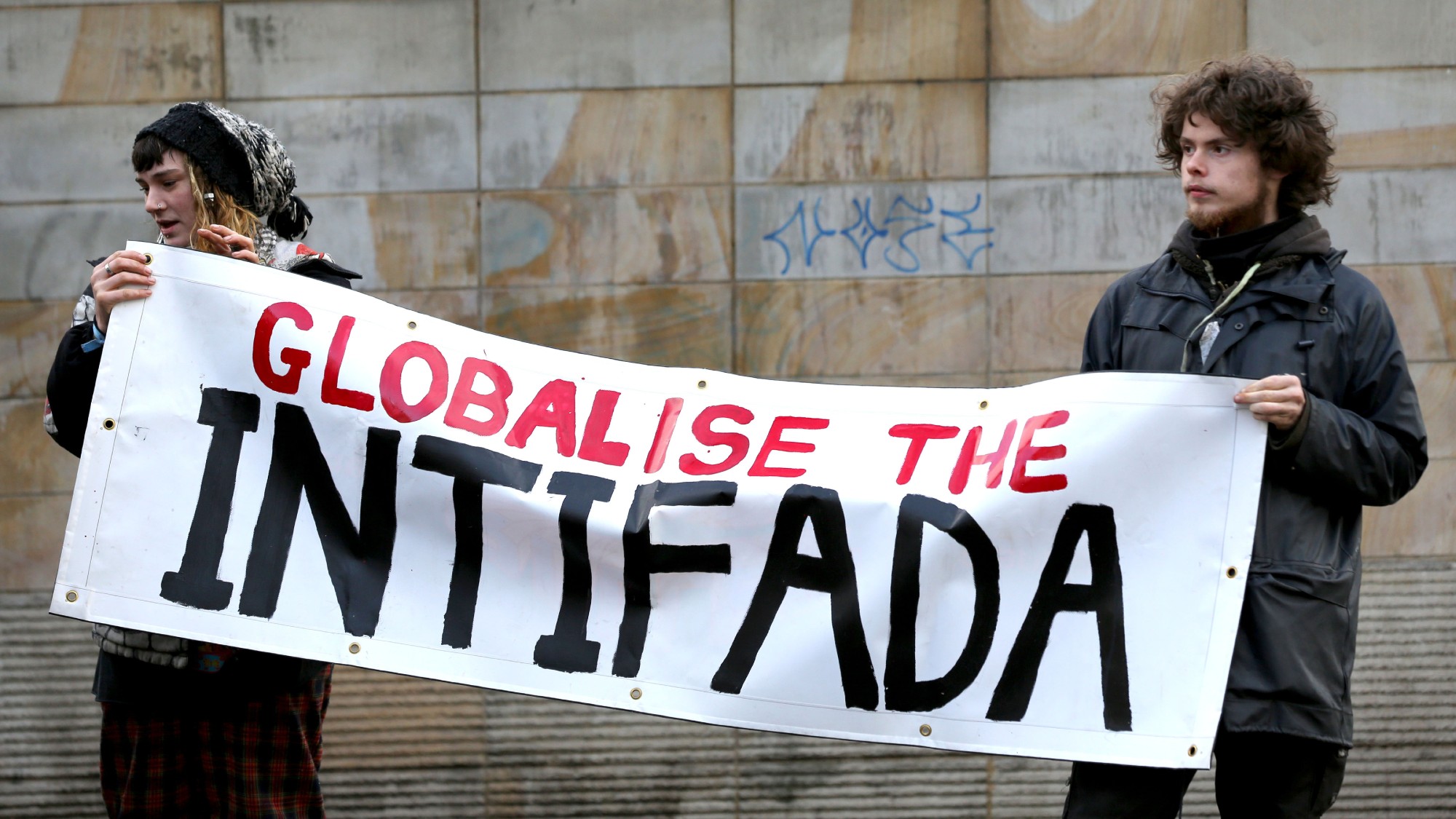 What is the global intifada?
What is the global intifada?The Explainer Police have arrested two people over controversial ‘globalise the intifada’ chants
-
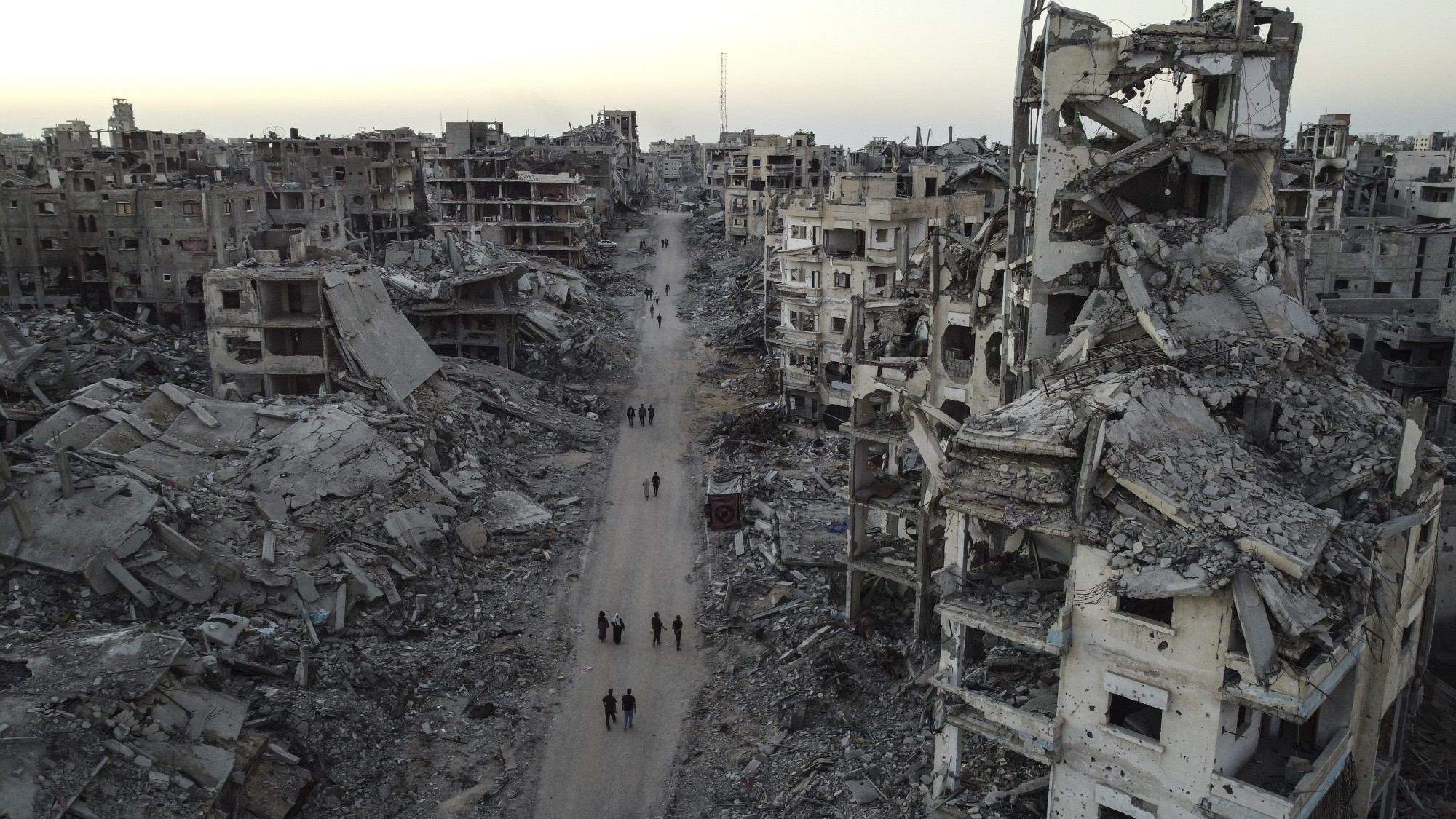 Is the ceasefire in Gaza really working?
Is the ceasefire in Gaza really working?Today's Big Question Neither Israel and Hamas has an interest in a full return to hostilities but ‘brutally simple arithmetic’ in region may scupper peace plan long-term
-
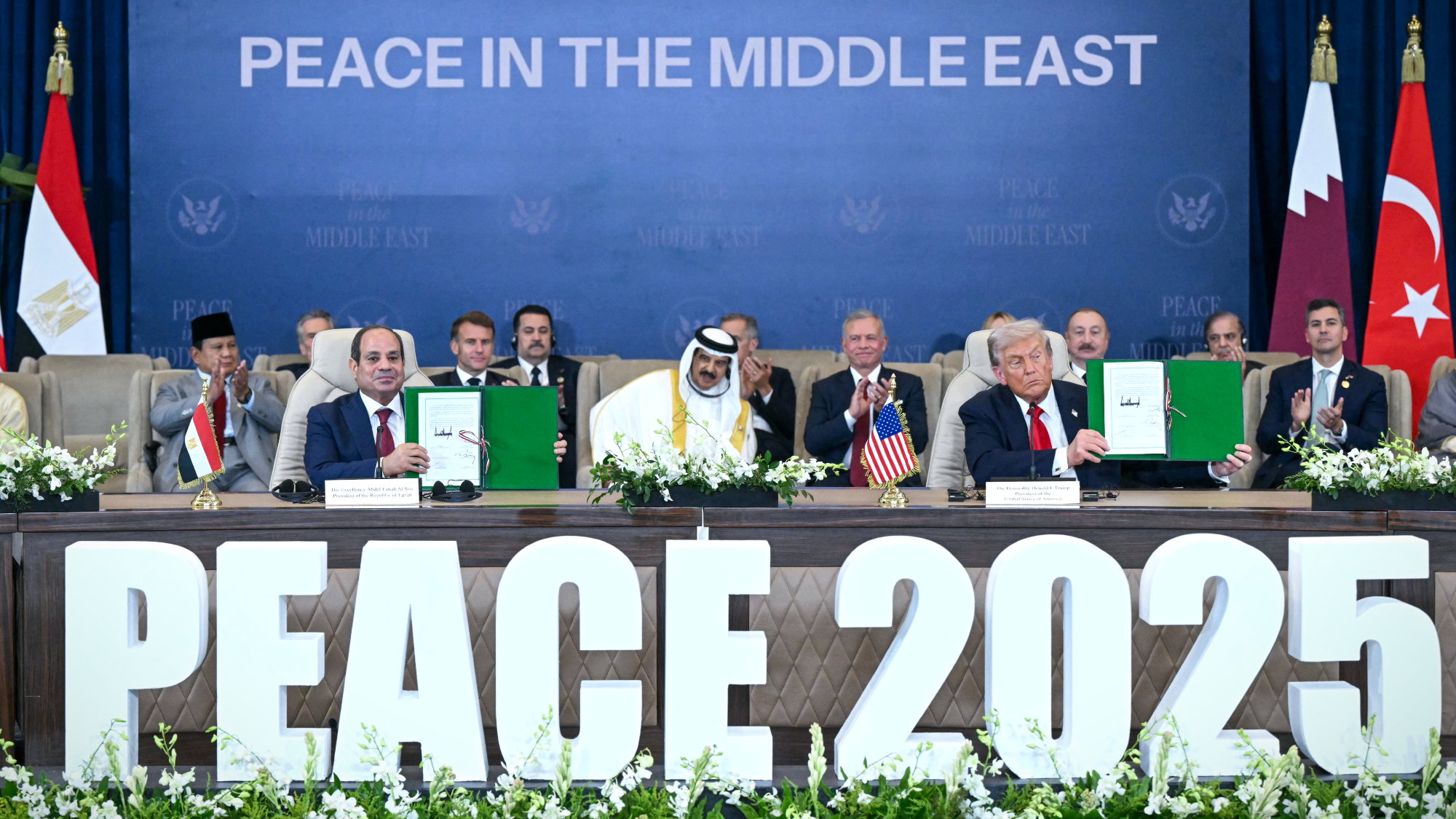 Trump declares end to Gaza war, ‘dawn’ of new Mideast
Trump declares end to Gaza war, ‘dawn’ of new MideastSpeed Read Hamas freed the final 20 living Israeli hostages and Israel released thousands of Palestinian detainees
-
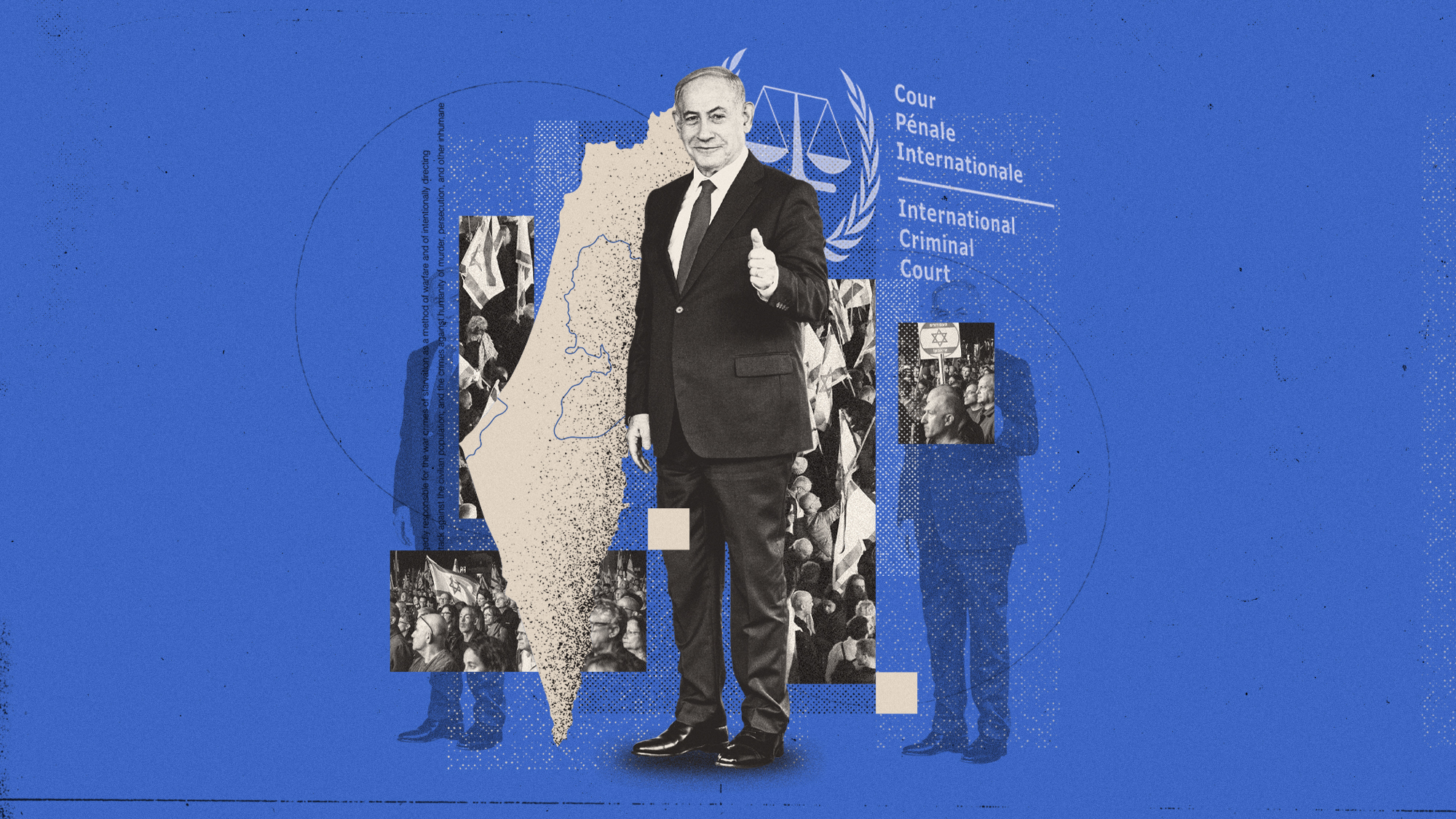 Has the Gaza deal saved Netanyahu?
Has the Gaza deal saved Netanyahu?Today's Big Question With elections looming, Israel’s longest serving PM will ‘try to carry out political alchemy, converting the deal into political gold’
-
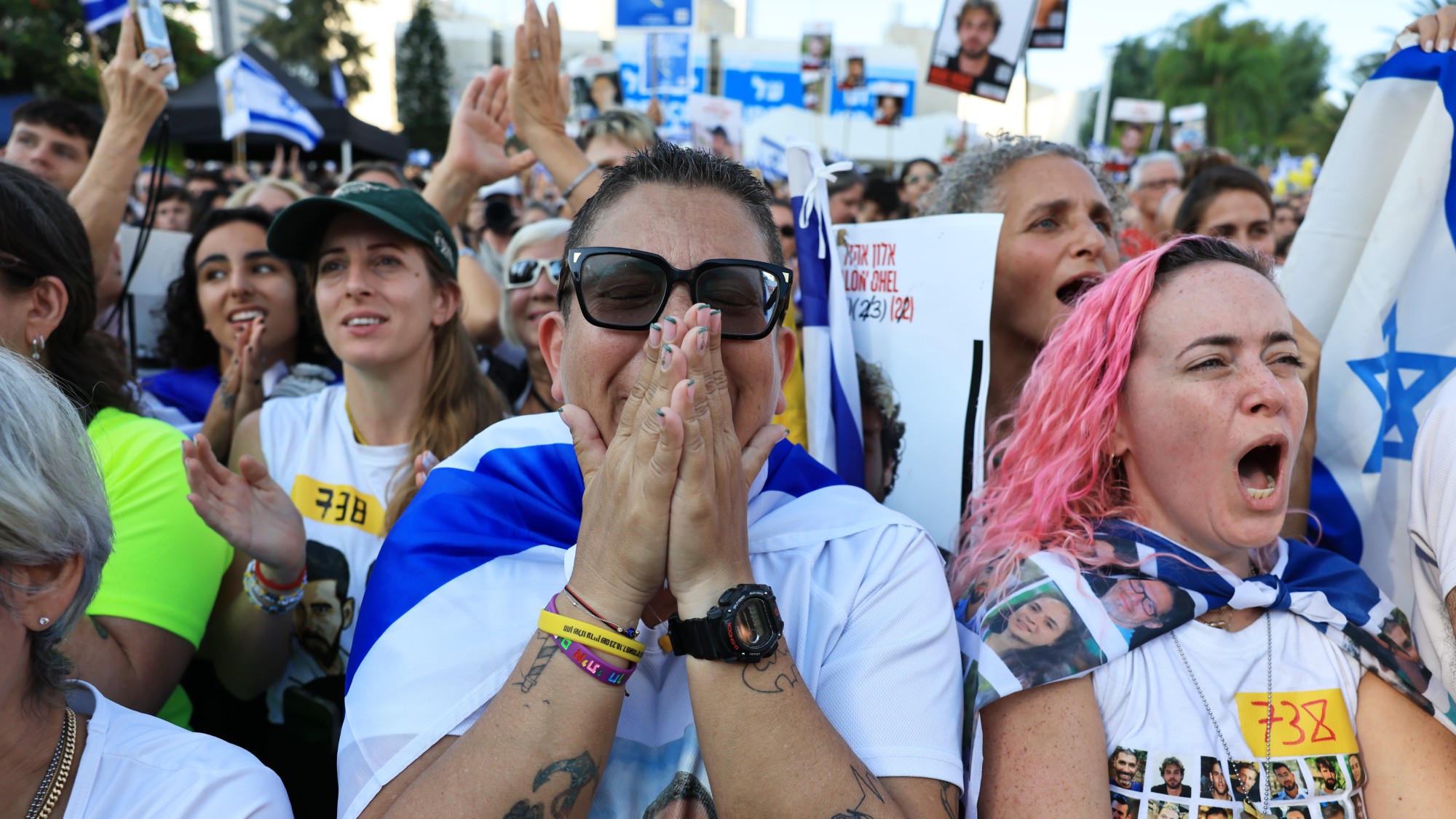 The Israeli hostages and Palestinian prisoners being released
The Israeli hostages and Palestinian prisoners being releasedThe Explainer Triumphant Donald Trump addresses the Israeli parliament as families on both sides of the Gaza war reunite with their loved ones
-
 Gaza peace deal: why did Trump succeed where Biden failed?
Gaza peace deal: why did Trump succeed where Biden failed?Today's Big Question As the first stage of a ceasefire begins, Trump’s unique ‘just-get-it-done’ attitude may have proven pivotal to negotiations
-
 ‘A legacy news brand brings a visibility of its own’
‘A legacy news brand brings a visibility of its own’Instant Opinion Opinion, comment and editorials of the day